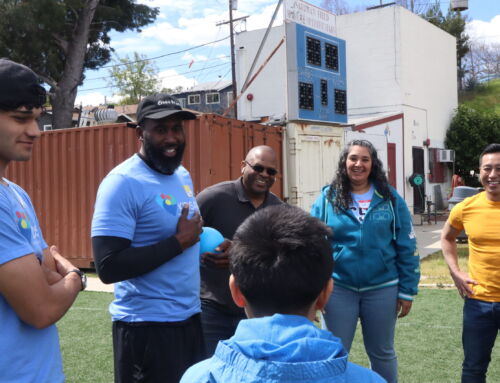
Kidsave currently operates mentorship programs in the U.S., Ukraine, and Colombia. Mentorship programs provide an opportunity to safely build connections between kids in foster care and the public while providing productive experiences and caring relationships for the youth. Sometimes, once a child has developed a positive relationship with a caring mentor, they become more open to adoption. Black and Brown children need to have cultural connections and mentors in their lives who can teach them about their culture and heritage and provide an understanding of their background, which will, in turn, help them to see their reflection and believe in themselves. In instances when the child cannot be with their biological family or kin, mentoring relationships are a great way to provide this cultural connection and bond. Anyone can mentor a Black or Brown child in foster care. However, it is essential to learn about cultural competence and humility.
Cultural competence is the ability to interact successfully with people of other cultural backgrounds. It is practicing an understanding of different cultures, values, and beliefs. It is the recognition and respect of cultural norms outside of your own. Identity is included in culture. Some components of culture include:
- Race
- Language
- gender
- ethnicity
- nationality
- developmental disabilities
- socioeconomic status
- age
- Indigenous heritage
- religion or spirituality
- education
- sexual orientation
Culture is a part of family and community. When a child is removed from their home and placed in foster care, connecting them with their community and culture can provide stability and safety.
Culturally competent care for children in foster care involves:
- Providing cultural connections and resources.
- Understanding the culture a child comes from.
- Being curious about what would make them feel safe and comfortable culturally.
Cultural humility is an ongoing process that involves self-evaluation and critique, addressing power imbalances, developing partnerships with people from other cultures, and lifelong learning. It recognizes that each person is an individual and that no people group is a monolith. It involves responsiveness, humility, and compassion.
Cultural competency is a goal, and cultural humility is a mindset.
They both involve the mentor or family participating in reflections, learning new skills, and adjusting their patterns and habits to help the child feel safe. It requires an open mind, not taking things personally, and reflecting on negative beliefs that may harm a child from a different background.
Practicing cultural humility involves:
- Being forthright.
- Getting comfortable with being uncomfortable.
- Being respectful.
- Asking questions.
- Talking about topics in public that you were taught not to discuss.
- Being intentional.
- Do work to find relatable resources for your kiddo.
Kidsave's EMBRACE Project and Weekend Miracles program are developing mandatory cultural competency and humility training for all new mentors, hosts, resource, and adoptive families. The training will be interactive. The curriculum will include research as a catalyst for change, definitions, historical context, and a toolkit.
The objectives will be for participants to gain:
- A basic understanding of the connection between systemic racism and child welfare
- An understanding of effective cultural connections for children in foster care
- Practical solutions to support cultural connections
Cultural Competency and humility training are essential and relevant to mentoring and adoption because
- it provides a safe space for Black and Brown children
- meets their unique needs
- can help people understand and communicate with people from different cultures
- helps rather than harms
- helps build deeper relationships
- enhances kindness and empathy skills
- helps mentors and families understand how the world will treat a Black or Brown child
- helps build confidence, pride, and esteem in children
Kidsave's Family Visit Model is a unique approach that allows caring adults to connect with older children in foster care or orphanages. The adults and children can interact through in-person events, scheduled visits, and regular Zoom calls, allowing them to get to know one another over time. Once a connection has been established, both the adults and the child get to determine whether or not they want to move forward as a match, giving the children in our program a voice and a choice in who their family will be. To sign up for Kidsave's Weekend Miracles program or learn more about what we do, visit https://www.kidsave.org/host-a-child/


